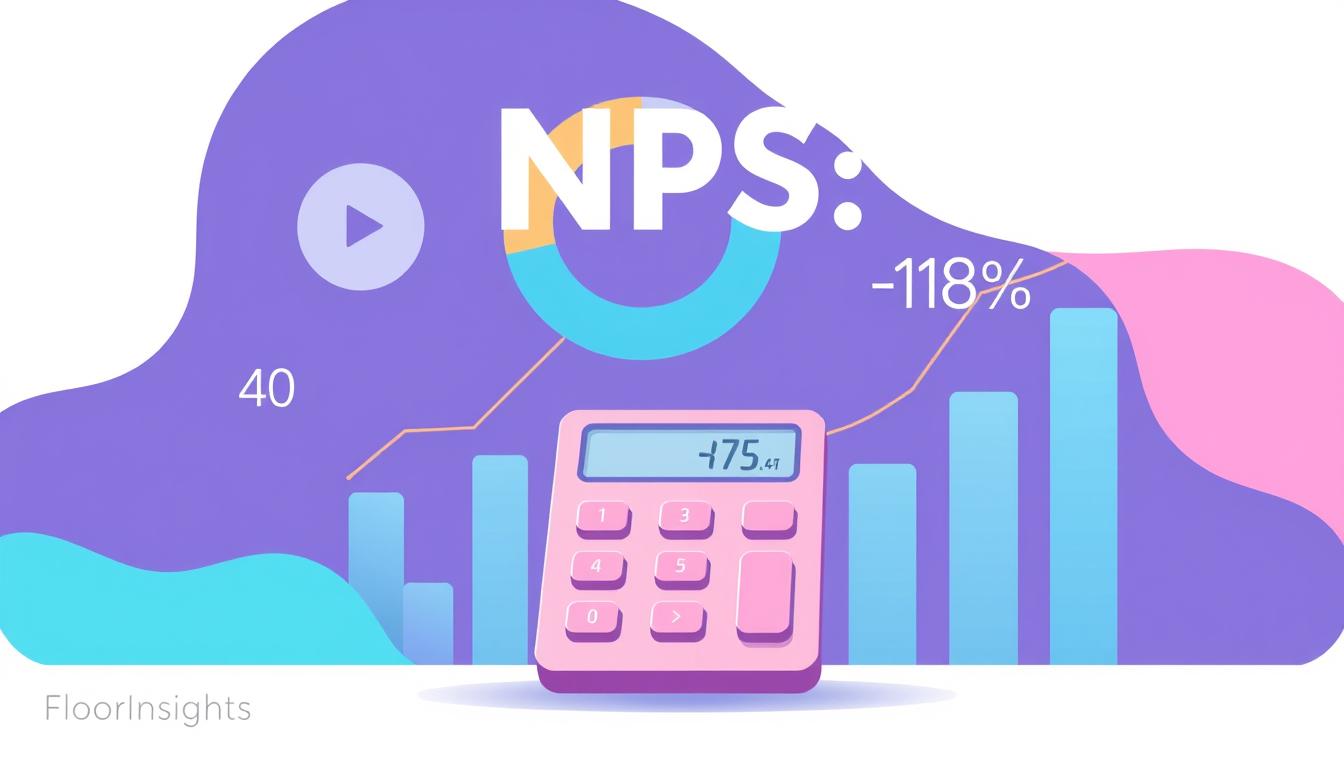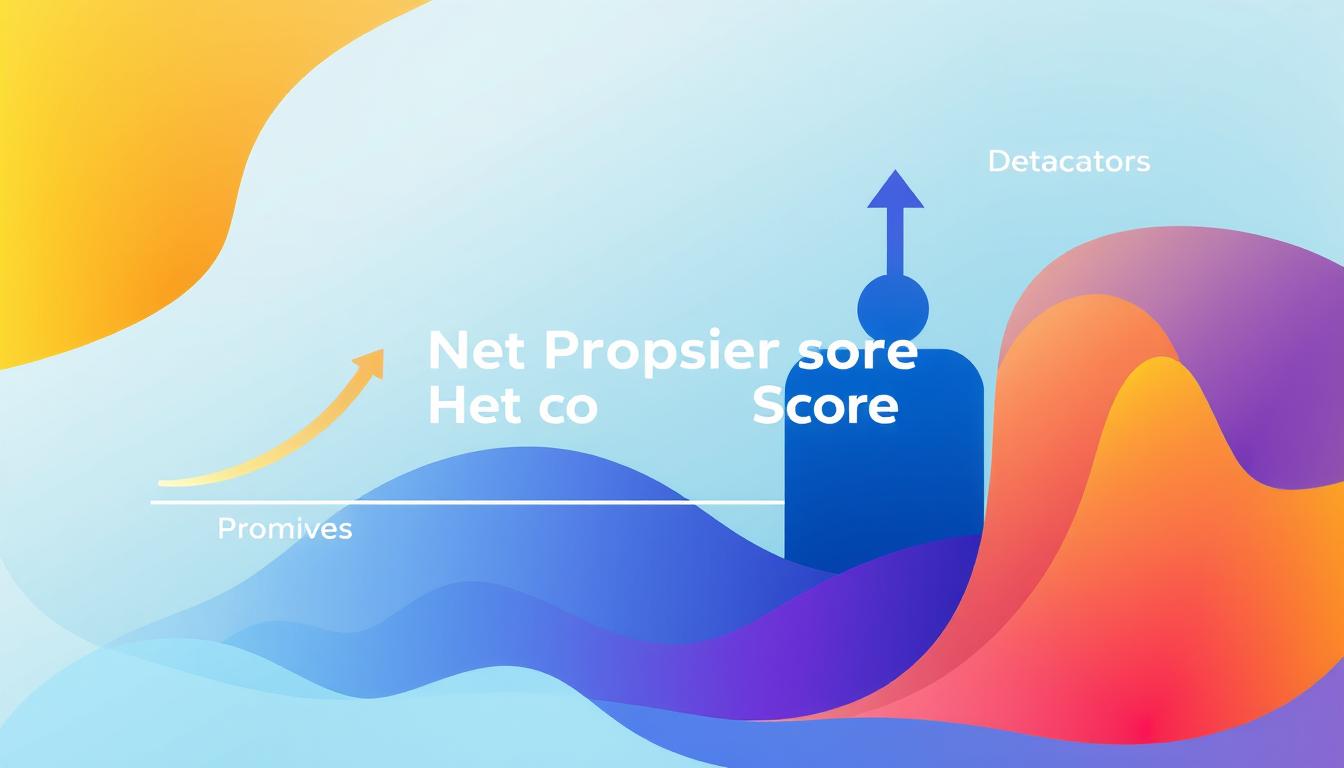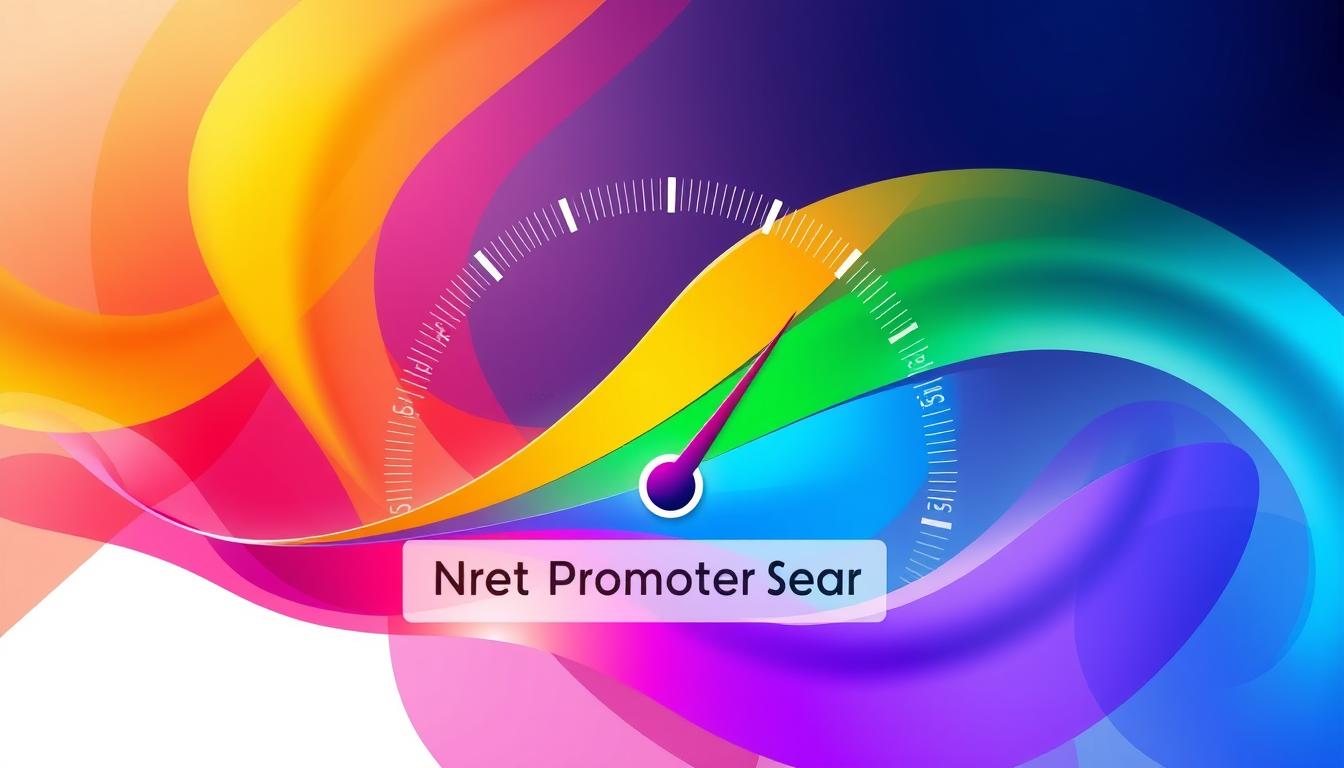In today’s data-driven world, the importance of maintaining ethical standards in Net Promoter Score (NPS) reporting cannot be overstated. We must recognize that NPS manipulation may skew our understanding of customer satisfaction, leading to erroneous business strategies and diminished customer trust. As we explore the implications of ethical practices in NPS measurement, we also need to focus on crucial aspects such as data privacy, which plays an integral role in preserving the integrity of our customer feedback systems. By prioritizing NPS ethics alongside our commitment to protecting user data, we can foster genuine relationships with our customers and ensure responsible reporting of NPS metrics.
Key Takeaways
- Understanding NPS ethics is essential for accurate data interpretation.
- Manipulating NPS scores can have long-term repercussions on customer trust.
- Data privacy concerns are crucial in today’s business landscape.
- Adhering to ethical standards enhances our credibility and customer loyalty.
- Fostering genuine feedback requires a commitment to transparency.
- Responsible NPS reporting is fundamental to sound business strategies.
Understanding the Importance of NPS
As we delve into understanding Net Promoter Score, we uncover its pivotal role in gauging customer satisfaction and loyalty. NPS operates as a straightforward yet effective customer feedback metric that helps organizations measure the likelihood that customers will recommend their products or services. This metric is crucial for improving business outcomes and fostering long-term customer relationships.
What is Net Promoter Score?
Net Promoter Score is a customer loyalty benchmark derived from survey responses, typically using a 0-10 scale. Participants are classified into three categories: Promoters (scores of 9-10), Passives (scores of 7-8), and Detractors (scores of 0-6). The formula to calculate NPS is simple: subtract the percentage of Detractors from the percentage of Promoters. The resulting score can range from -100 to +100, offering insights into overall customer sentiment.
Why NPS Matters for Businesses
The importance of NPS lies in its ability to provide actionable insights that drive strategic decision-making. Businesses utilizing NPS can identify areas of improvement, enhancing customer experience significantly. By analyzing customer feedback metrics, organizations can tailor their services to meet consumer needs effectively. NPS not only forecasts customer retention but may also correlate with growth potential, as satisfied customers often translate into increased sales and brand loyalty.
| Customer Segment | Score Range | Impact on Business |
|---|---|---|
| Promoters | 9-10 | Advocates for the brand, likely to refer others |
| Passives | 7-8 | Content but unexcited, vulnerable to competitors |
| Detractors | 0-6 | Unhappy customers, potential for negative feedback |
The Ethics of NPS Measurement
As we examine the realm of NPS measurement practices, it becomes apparent that ethical considerations in reporting play a crucial role. Transparency and accuracy help maintain the integrity in data collection, ensuring that the insights derived from NPS can be trusted and valued across the organization.
Ethical Considerations in Reporting
In our pursuit of NPS ethics, we must acknowledge potential ethical dilemmas. Companies may be tempted to distort data to present a more favorable view of customer satisfaction. Such practices ultimately undermine the value of feedback. To foster genuine improvement, organizations should prioritize honest reporting and resist the urge to present manipulated scores.
Maintaining Integrity in Data Collection
Integrity in data collection is paramount for effective NPS measurement. Implementing robust systems to gather feedback can enhance trustworthiness. This includes safeguarding against biases that may influence results. We encourage organizations to establish a culture centered on ethical data practices, ensuring that every response accurately reflects customer sentiment.
| Ethical Dilemma | Impact on NPS Practices | Recommended Solutions |
|---|---|---|
| Data Manipulation | Inaccurate representation of customer sentiments | Implement strict reporting guidelines |
| Confirmation Bias | Skewed understanding of customer feedback | Diverse data collection techniques |
| Lack of Transparency | Erosion of customer trust | Open communication of methodology |
By emphasizing NPS ethics, we can establish a framework that promotes truthful feedback. This commitment to ethical considerations in reporting lays the foundation for impactful and genuine insights, driving business growth in a responsible manner. Fostering integrity in data collection will ultimately empower us to make informed decisions that resonate with customer needs.
NPS Score Calculation: Best Practices
Calculating the NPS score accurately is essential for gaining insights into customer loyalty and satisfaction. Following best practices for NPS ensures that the data we collect truly reflects customer sentiments. We must be mindful of the methodology involved, including effective surveying techniques and response interpretation.
How to Calculate NPS Effectively
The NPS score calculation begins with asking customers a straightforward question: “On a scale of 0 to 10, how likely are you to recommend our product/service to a friend or colleague?” The responses categorize customers into three groups:
- Promoters: Customers who score 9-10
- Passives: Customers who score 7-8
- Detractors: Customers who score 0-6
The final NPS score is derived by subtracting the percentage of detractors from the percentage of promoters. This straightforward method allows us to derive insights from accurate NPS responses.
Common Pitfalls in NPS Calculation
Throughout our experience, we have noticed several common pitfalls in NPS calculation. These include:
- Leading questions that influence responses
- Sample bias, where only certain customer segments are surveyed
- Ignoring follow-up questions to understand the “why” behind scores
Avoiding these pitfalls improves the credibility of our findings and ensures more trustworthy data.
Ensuring Accurate Responses
To enhance the accuracy of NPS responses, we recommend implementing the following strategies:
- Clearly explain the purpose of the survey
- Be transparent about how the data will be used
- Design surveys to encourage honest feedback
Building trust with customers helps in obtaining accurate NPS responses, essential for meaningful analysis and improvement.
A well-structured approach to NPS score calculation not only reflects customer opinions accurately but also assists in shaping future business strategies. By incorporating these best practices for NPS, we create a reliable foundation for understanding customer loyalty.
Data Privacy and NPS Reporting
In today’s digital landscape, data privacy plays a crucial role in NPS reporting. As businesses rely on customer feedback to shape their strategies, it becomes imperative to prioritize protecting customer information. We must ensure that our methods comply with relevant data protection laws, fostering a secure environment for our clients.
Protecting Customer Information
Understanding the significance of protecting customer information cannot be overstated. To build trust with our customers, we should implement robust data security measures that safeguard sensitive feedback. Strategies we can employ include:
- Utilizing encryption techniques for data storage and transmission.
- Implementing strict access controls to limit who can view customer information.
- Regularly auditing data access and security protocols.
- Providing comprehensive training for our teams on data handling practices.
Compliance with Data Protection Laws
Adhering to data protection laws such as GDPR and the Indian IT Act is essential for legal and ethical accountability. Compliance ensures our practices align with established guidelines, which strengthens our credibility. Key aspects of compliance include:
- Conducting thorough assessments of our data handling practices.
- Establishing clear privacy policies that communicate how we use customer data.
- Obtaining explicit consent from customers before collecting their data.
- Facilitating customers’ rights to access and delete their data as requested.

By focusing on data privacy and ensuring compliance with data protection laws, we not only enhance our NPS reporting but also establish a foundation of trust with our customers. This careful attention to protecting customer information ultimately contributes to long-term business success.
Strategies for Avoiding NPS Manipulation
Establishing effective strategies for avoiding NPS manipulation is essential to fostering genuine customer engagement. By implementing robust reporting practices, we can ensure that our data remains credible and reflects true customer sentiment. It is vital to cultivate an environment that encourages honest feedback from customers, allowing insights to drive meaningful improvements.
Developing Robust Reporting Practices
A key component of ethical NPS strategies is the establishment of robust reporting practices. We should prioritize transparency in how data is collected and presented. This includes:
- Clearly defined metrics: Utilize standardized definitions for what constitutes a promoter, passive, or detractor.
- Regular audits: Conduct periodic reviews of the data collection and reporting processes to identify any discrepancies.
- User-confidence measures: Create mechanisms to boost confidence in reporting, reassuring customers that their feedback influences decisions.
Encouraging Honest Feedback from Customers
Creating a feedback culture rooted in honesty is instrumental in avoiding NPS manipulation. We can encourage honest feedback from customers through methods such as:
- Anonymity assurance: Ensure participants know their responses remain anonymous, reducing fear of repercussions.
- Responsive feedback loops: Actively respond to feedback, demonstrating that it is valued and taken seriously.
- Continuous engagement: Develop ongoing discussions with customers, reinforcing the value of their opinions beyond occasional surveys.
By integrating these strategies, we can nurture a sustainable feedback ecosystem that enhances our relationship with customers and upholds the integrity of our NPS scores. Honest feedback from customers will empower us to drive improvements and refine our services effectively.
Improving CSAT and NPS Together
We understand the vital connection between Customer Satisfaction (CSAT) and Net Promoter Score (NPS). Recognizing that both metrics reflect how our customers perceive their experiences can significantly enhance our strategy. By linking CSAT to NPS, we can gain insights that help us improve customer satisfaction and encourage customer loyalty.
Linking Customer Satisfaction to NPS
Establishing a clear relationship between CSAT and NPS involves recognizing that satisfied customers are likely to become enthusiastic promoters of our brand. We should actively seek to identify how our current efforts impact these scores. Analyzing feedback from both metrics allows us to pinpoint strengths and weaknesses in our offerings. Understanding the reasons behind customer feedback paves the way to innovate and align our services more closely with their expectations.
Strategies to Elevate Customer Experience
To effectively improve CSAT and NPS simultaneously, we must implement a range of strategies centered around elevating customer experience. Here are some key actions:
- Personalized Communication: Tailoring messages and solutions to meet individual customer needs fosters a connection and enhances satisfaction.
- Proactive Issue Resolution: Addressing concerns before they escalate demonstrates our commitment to customer care, which in turn improves CSAT.
- Continuous Feedback Loops: Implementing regular check-ins allows us to adjust services based on customer input, showing we value their opinions.
- Training Employees: Equipping our teams with the necessary skills to provide top-notch service ensures they can manage and exceed customer expectations.
By focusing on these strategies, we can significantly enhance our customers’ experiences, leading to an increase in both CSAT and NPS. Ultimately, this holistic approach ensures we not only meet but exceed our customers’ high expectations, securing their loyalty and driving long-term success for our organization.
| Strategy | Expected Outcome |
|---|---|
| Personalized Communication | Increased engagement and trust |
| Proactive Issue Resolution | Higher CSAT scores due to prompt support |
| Continuous Feedback Loops | Improved product/service alignment with customer expectations |
| Training Employees | Enhanced service delivery and customer interactions |
Leveraging AI for Customer Insights
In today’s competitive landscape, understanding customer sentiment is crucial. We can utilize AI for customer insights to delve deeper into NPS data, providing businesses with valuable information. By implementing effective AI tools for feedback, organizations can streamline their analysis and improve response rates. This technology not only automates data collection but also enhances NPS analysis by revealing actionable patterns.
How AI Enhances NPS Analysis
AI systems analyze vast amounts of data quickly, allowing us to gain insights that would be challenging to uncover manually. With powerful algorithms, AI can detect trends, sentiment, and feedback quality, providing a clearer picture of customer satisfaction. This enhanced NPS analysis leads to better strategies for addressing customer needs and expectations.
AI Tools for Better Customer Feedback
Several AI tools exist to aid businesses in collecting and interpreting customer feedback efficiently. These tools can automate surveys, analyze open-ended responses, and categorize feedback based on sentiment analysis. By implementing customer insights AI, we can ensure a more nuanced understanding of what drives customer satisfaction and loyalty.
| AI Tool | Functionality | Benefits |
|---|---|---|
| Sentiment Analysis Software | Analyzes customer feedback for emotional tone | Helps identify customer feelings towards products/services |
| Feedback Automation Platforms | Collects customer responses automatically | Increases response rates and feedback volume |
| Data Visualization Tools | Displays NPS data in interactive dashboards | Eases interpretation and facilitates quick insights |
Market Gap Analysis and NPS
As we delve into the concept of market gap analysis, it becomes evident that utilizing Net Promoter Score (NPS) can significantly enhance our understanding of customer sentiment and unmet needs. By examining the feedback derived from NPS surveys, organizations can uncover valuable insights that illuminate potential areas for growth. Identifying these NPS opportunities allows us to tailor our strategies to address the shortcomings in our offerings, ultimately driving customer satisfaction and loyalty.
Identifying Opportunities Through NPS
We can effectively identify market opportunities by closely analyzing customer responses to NPS surveys. Understanding the reasons behind customer feedback, whether promoters or detractors, provides us with actionable data that highlights specific areas where our products or services may fall short. This process not only aids in improving our current offerings but also sets the stage for innovation and the development of new solutions that resonate with consumers. Through diligent analysis, we align ourselves with our customer’s evolving needs, thereby strengthening our market position.
How to Find a Market Gap
Finding a market gap goes hand in hand with our analysis of NPS data. By cross-referencing customer feedback with market trends and competitor analysis, we can pinpoint unique opportunities that others may overlook. Engaging in a structured approach to market gap analysis involves assessing gaps in customer expectations versus their experiences, leading to the identification of untapped segments. This strategic alignment not only informs our decision-making processes but transforms customer feedback into a powerful tool for competitive advantage in our industry.
FAQ
What is the Net Promoter Score (NPS)?
The Net Promoter Score (NPS) is a customer loyalty metric that measures customers’ willingness to recommend a company’s products or services. It is calculated based on responses to a single question: “On a scale of 0-10, how likely are you to recommend us to a friend or colleague?” Customers are then categorized as promoters, passives, or detractors, providing valuable insights into overall customer satisfaction.
How can we improve our NPS score?
Improving your NPS score involves actively seeking and addressing customer feedback. We can enhance customer satisfaction by implementing strategies such as personalized communication, resolving issues promptly, and continuously evaluating and improving our offerings based on customer insights.
Why is NPS important for business strategy?
NPS is crucial for business strategy as it provides actionable insights into customer loyalty and satisfaction. Understanding our NPS can help us identify trends, gauge customer sentiment, and make informed decisions that drive growth and improve customer retention.
What are the ethical considerations in measuring NPS?
Ethical considerations in measuring NPS include ensuring transparency and accuracy in data collection and reporting. We must avoid manipulating scores for internal reporting purposes, as this can lead to loss of customer trust and misinformed business strategies. Upholding integrity in our processes is essential.
How do we calculate NPS effectively?
To calculate NPS effectively, we subtract the percentage of detractors from the percentage of promoters, resulting in a score that can range from -100 to +100. It is vital to use clear survey questions and avoid biases to ensure accurate and honest feedback from customers.
How can we safeguard customer information during NPS reporting?
Safeguarding customer information is essential for maintaining trust. We can implement measures such as data encryption, access controls, and compliance with data protection laws (like GDPR) to protect sensitive information during NPS reporting.
How does AI enhance our understanding of customer feedback?
AI enhances our understanding of customer feedback by analyzing large datasets to identify trends and sentiments more efficiently. Utilizing AI tools allows us to uncover deeper insights that inform our NPS strategy and improve overall customer experience.
What strategies can we employ to avoid manipulating NPS data?
To avoid manipulating NPS data, we can establish robust reporting practices that emphasize honesty and transparency. Encouraging open feedback from customers without fear of repercussions also helps foster a culture of continuous improvement.






